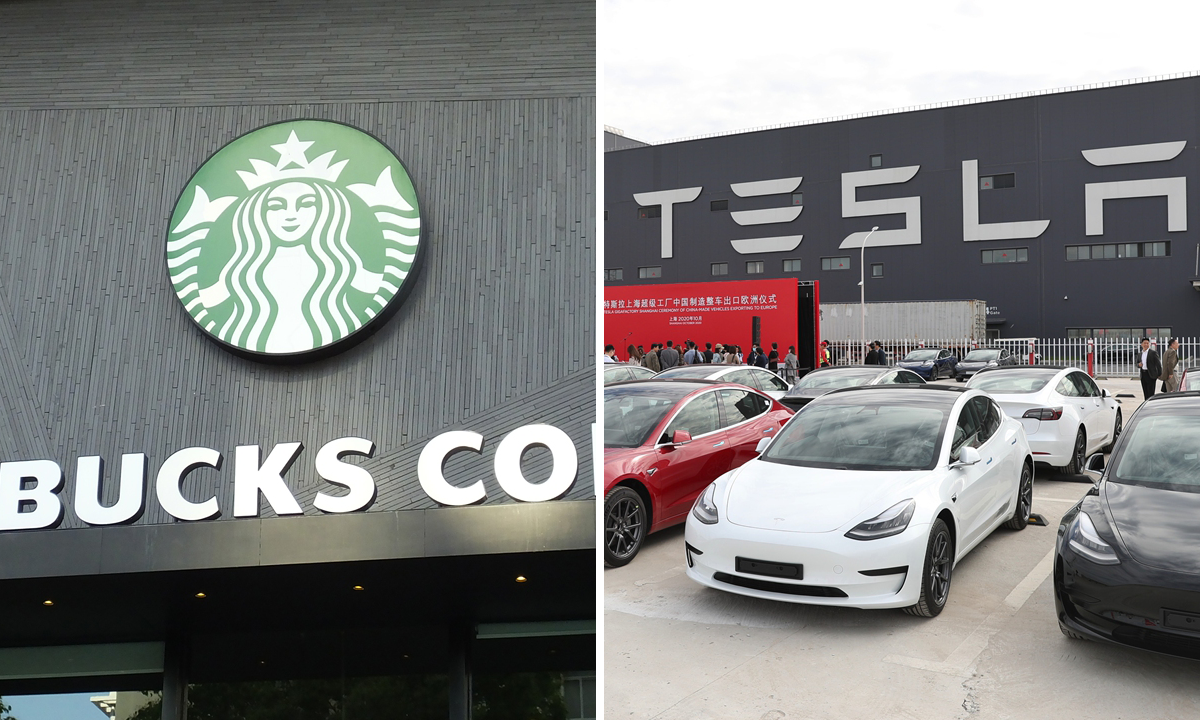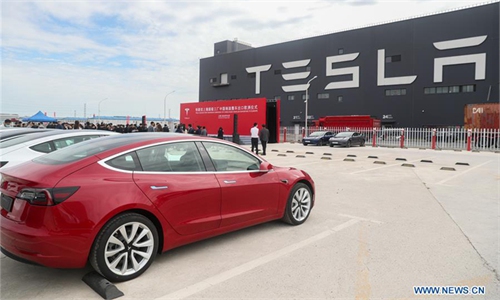
Photo:VCG
Starbucks and Tesla are singled out in an annual report that the China Consumers Association (CCA) issued on Friday on the protection of consumer rights and interests in 2021, revealing that consumer rights infringement problems are still frequent in certain fields.
Constant vigilance is needed to counter food safety risks, CCA said. Crimes against food safety have been constantly emerging, and there are also food safety incidents involving famous brands, including Starbucks which was found to have secretly altered ingredient labels and using expired ingredients and Japanese chain restaurant Yoshinoya which was reported for using poor quality minced meat.
In February, Starbucks was fined around 1.36 million yuan ($210,000) by the local market regulator in Wuxi, East China's Jiangsu Province, after two of its outlets in the city were found to have adjusted ingredient shelf life and used expired ingredients.
In addition, businesses in the field of new-energy vehicles have fallen under the spotlight for rights infringement issues. Reports over car safety problems, such as sudden speed acceleration and flameout during driving have come to light, the annual report said.
Also, many new disputes relating new-energy intelligent vehicles purchases have emerged, creating new challenges for rights protection. Such disputes include power failure during driving, endurance mileage shrinkage, battery charging failure and other problems.
A video of a sedan owner defending her rights at Tesla's booth at a Shanghai auto exhibition on April 19, 2021 went viral among Chinese netizens, and similar on-site complaints happened in another auto exhibition in Guangzhou in November 2021. The frequent occurrences of consumer protests at auto shows indicate that consumers still have difficulties in right protection in the field of automobile consumption, especially in the field of intelligent vehicles.
Besides the rights infringement problems relating food and new-energy vehicles, the annual report also revealed that some online platforms and mobile phone apps are guilty of excessively collecting and utilizing consumers' personal information. There exist serious refunding difficulties in prepaid product and service sectors; and the minors and the elderly are subject to various and complex forms of infringements.
Global Times


